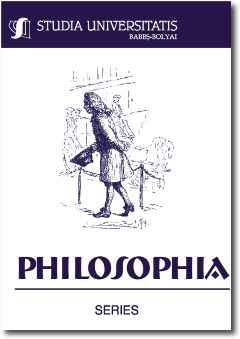DESCARTES ON THE DISPOSITION OF THE BLOOD AND THE SUBSTANTIAL UNION OF MIND AND BODY
DESCARTES ON THE DISPOSITION OF THE BLOOD AND THE SUBSTANTIAL UNION OF MIND AND BODY
Author(s): John Elias NaleSubject(s): Philosophy
Published by: Studia Universitatis Babes-Bolyai
Keywords: mind-body union; substantial form; substantial union; generation; Jean Fernel; William Harvey.
Summary/Abstract: This essay addresses the interpretation of Descartes’ understanding of the mind-body relationship as a substantial union in light of a statement he makes in the Passions de l’âme regarding the role of the blood and vital heat. Here, it seems Descartes cites these corporeal properties as the essential dispositions responsible for accommodating the soul into the human fetus. I argue that this statement should be read in the context of certain medical texts with which Descartes was familiar, namely those of Jean Fernel and William Harvey. Reviewing Fernel’s comments on substantial union, one finds that the soul joins the body on the basis of a celestial spirit that not only bears the vital heat, it also directs the generation of the body. Similar to Harvey, Descartes locates these properties in the blood itself, although, in contrast to Harvey, Descartes reduces these processes to matter and motion. Finally, I highlight the role this heat plays in Descartes’ embryological writing, contrasting it with that of Fernel. I conclude that although Descartes makes various comments supporting a reading of the mind-body relation as a substantial union, his physiological writings on generation and his idea of ‘life’ contradict this interpretation.
Journal: Studia Universitatis Babes-Bolyai - Philosophia
- Issue Year: 58/2013
- Issue No: 3
- Page Range: 109-124
- Page Count: 16
- Language: English

